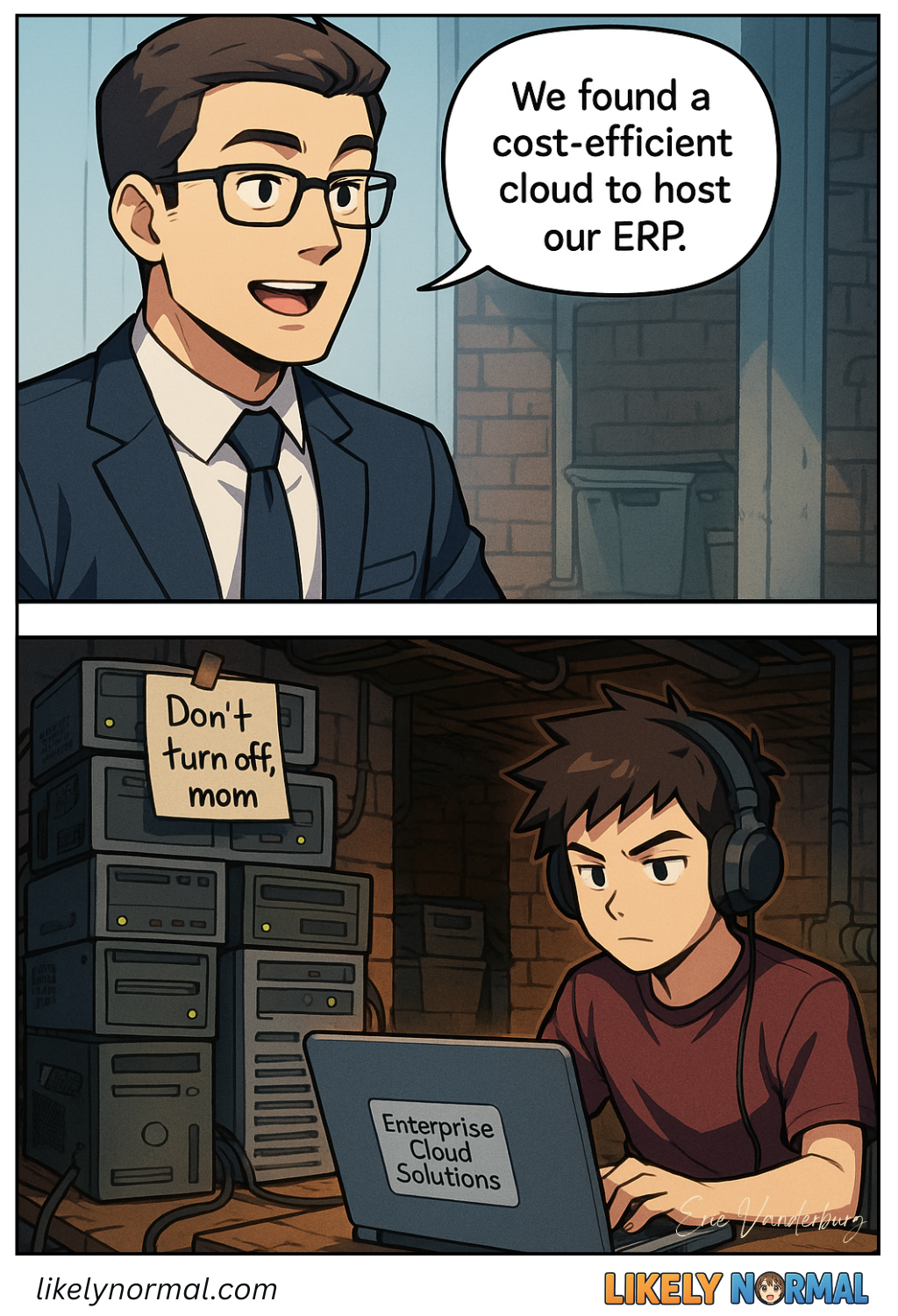Budget Cloud Service Providers
You know those suspiciously cheap cloud services with names like “Elite Secure Cloud Pro” that somehow cost less per year than a Starbucks coffee? These digital snake oil salesmen promise enterprise-grade infrastructure but deliver what feels like a USB stick duct-taped to a ceiling fan. Their business model seems to be equal parts false advertising, technical incompetence, and sheer audacity.
Nothing raises red flags faster than their “unlimited storage” claims, which inevitably come with microscopic fine print revealing that “unlimited” actually means “5GB, and we’ll throttle your connection to dial-up speeds if you actually try to use it.” Their idea of data security is password-protecting files with “12345” and calling it military-grade encryption. Uptime guarantees are pure fiction—their servers go down more often than a clumsy tightrope walker, and their version of “24/7 support” is an unmonitored email address that auto-replies with inspirational quotes.
The real comedy begins when you need to recover lost data. Their backup system consists of crossing their fingers and hoping the hamster powering their server didn’t take a break. Pricing turns predatory the moment you become dependent on them, with sudden “service fees” appearing like magic whenever you try to download your own files. And God help you if you read their terms of service, which likely includes clauses like “we own all your data now” and “by using this service you agree to never sue us for any reason.”
These providers are the tech equivalent of a back-alley mechanic who promises to fix your car but just spray-paints over the check engine light. Their websites look like they were designed in 2004, their CEOs have LinkedIn profiles listing skills like “making computers go brrr,” and their entire operation appears to run out of a basement that may or may not also be a Bitcoin mining operation.
At the end of the day, you get what you pay for. Choosing one of these providers to host your important data is like storing your life savings in a cardboard box labeled “definitely not a bank.” Sure, it might work out fine… but you’ll probably return to find the box empty except for a note saying “thanks for the Bitcoin.”

Discussion ¬